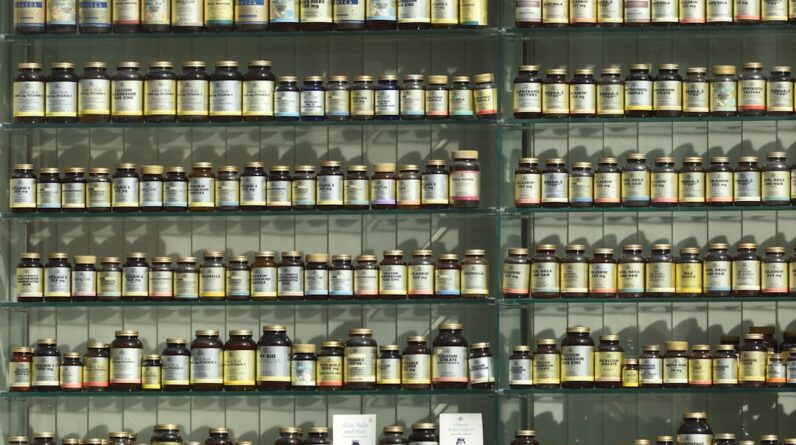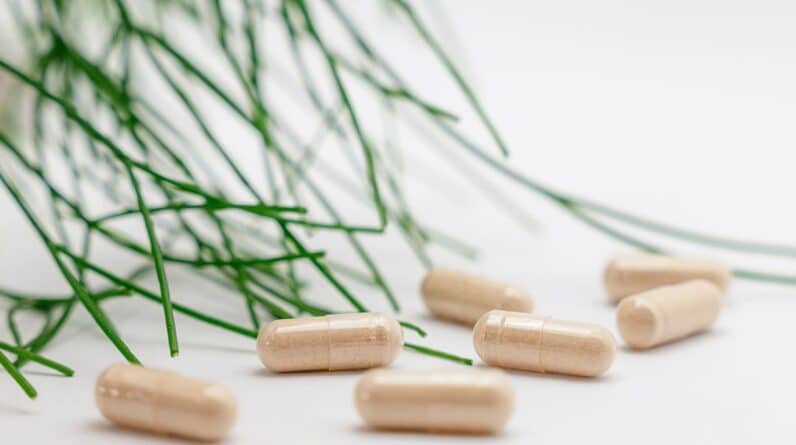Glutathione is a powerful antioxidant that plays a crucial role in maintaining your overall health. Composed of three amino acids—cysteine, glutamine, and glycine—this tripeptide is found in every cell of your body. It is often referred to as the body’s master antioxidant due to its ability to combat oxidative stress and neutralize free radicals.
This unique compound is not only vital for cellular function but also serves as a key player in various biochemical processes, including detoxification, immune response, and the synthesis of proteins. Understanding glutathione’s structure and function can help you appreciate its significance in your daily life. It exists in two forms: reduced (GSH) and oxidized (GSSG).
The reduced form, GSH, is the active antioxidant that protects your cells from damage, while the oxidized form, GSSG, is a result of GSH’s action against free radicals. Your body continuously recycles GSSG back into GSH, ensuring that you have a steady supply of this essential antioxidant. However, factors such as poor diet, stress, and environmental toxins can deplete your glutathione levels, making it essential to understand how to maintain and boost this vital compound.
Key Takeaways
- Glutathione is a powerful antioxidant produced in the body that plays a crucial role in protecting cells from damage and supporting the immune system.
- Glutathione helps to detoxify the body by neutralizing harmful free radicals and supporting the liver in removing toxins.
- Increasing glutathione levels can be achieved through consuming foods rich in sulfur, such as garlic and onions, and taking supplements like N-acetyl cysteine and milk thistle.
- Glutathione levels naturally decline with age, but maintaining adequate levels through diet and supplementation can help support healthy aging and reduce the risk of age-related diseases.
- Research on glutathione continues to explore its potential in disease prevention, immune support, and overall health, with promising findings that may lead to new treatments and therapies in the future.
The Role of Glutathione in the Body
Glutathione serves multiple roles within your body, acting as a protector and facilitator of various physiological processes. One of its primary functions is to neutralize free radicals, which are unstable molecules that can cause cellular damage and contribute to aging and disease. By donating electrons to these free radicals, glutathione helps stabilize them, preventing oxidative stress that can lead to chronic health issues.
This protective mechanism is particularly important for your liver, where glutathione plays a pivotal role in detoxifying harmful substances. In addition to its antioxidant properties, glutathione is essential for the proper functioning of your immune system. It helps regulate immune responses by promoting the proliferation of lymphocytes, which are crucial for fighting infections.
When your glutathione levels are optimal, your body can respond more effectively to pathogens and reduce inflammation. Furthermore, glutathione is involved in the synthesis of DNA and proteins, making it vital for cellular repair and regeneration. This multifaceted role underscores the importance of maintaining adequate levels of glutathione for overall health and well-being.
The Benefits of Glutathione for Health

The benefits of glutathione extend far beyond its antioxidant capabilities. One of the most significant advantages is its role in enhancing energy levels. When your cells are adequately protected from oxidative stress, they can function more efficiently, leading to improved energy production.
This can be particularly beneficial for individuals experiencing fatigue or low energy levels due to chronic stress or illness. By supporting cellular health, glutathione can help you feel more vibrant and energized throughout your day. Moreover, glutathione has been linked to improved skin health.
Its antioxidant properties help combat skin damage caused by UV radiation and pollution, promoting a more youthful appearance. Many skincare products now incorporate glutathione as a key ingredient due to its ability to brighten skin tone and reduce the appearance of fine lines and wrinkles. By boosting your glutathione levels, you may not only enhance your internal health but also improve your external appearance, making it a valuable addition to your wellness routine.
How to Increase Glutathione Levels
Increasing your glutathione levels can be achieved through various lifestyle changes and dietary choices. One effective way to boost this vital antioxidant is by consuming foods rich in sulfur-containing amino acids. Foods such as garlic, onions, cruciferous vegetables (like broccoli and Brussels sprouts), and legumes are excellent sources that can help enhance your body’s production of glutathione.
Incorporating these foods into your diet can provide the necessary building blocks for synthesizing this powerful antioxidant. In addition to dietary changes, regular exercise has been shown to increase glutathione levels in the body. Engaging in physical activity stimulates the production of antioxidants and promotes overall cellular health.
Aim for a balanced routine that includes both aerobic exercises and strength training to maximize the benefits. Furthermore, consider reducing exposure to environmental toxins and managing stress through mindfulness practices or relaxation techniques. These lifestyle adjustments can significantly contribute to maintaining optimal glutathione levels and supporting your overall health.
Glutathione and Aging
As you age, your body’s natural production of glutathione tends to decline, which can contribute to various age-related health issues. This decrease in glutathione levels is associated with increased oxidative stress, inflammation, and a higher risk of chronic diseases such as heart disease and diabetes. Understanding this connection can empower you to take proactive steps in preserving your health as you grow older.
To combat the effects of aging on glutathione levels, it is essential to adopt a holistic approach that includes a balanced diet rich in antioxidants, regular physical activity, and stress management techniques. By prioritizing these aspects of your lifestyle, you can help mitigate the decline in glutathione production and promote healthy aging. Additionally, some studies suggest that supplementation with precursors like N-acetylcysteine (NAC) may help boost glutathione levels in older adults, providing an extra layer of support for maintaining vitality as you age.
Glutathione and Disease Prevention

The role of glutathione in disease prevention cannot be overstated. Research has shown that adequate levels of this antioxidant are associated with a lower risk of developing various chronic diseases. For instance, individuals with higher glutathione levels tend to have better cardiovascular health due to its ability to reduce oxidative stress and inflammation within blood vessels.
This protective effect can help lower blood pressure and improve overall heart function. Moreover, glutathione has been studied for its potential role in cancer prevention. Its antioxidant properties may help protect cells from DNA damage caused by free radicals, reducing the risk of mutations that can lead to cancerous growths.
Additionally, glutathione plays a role in detoxifying carcinogens and other harmful substances that may contribute to cancer development. By maintaining optimal levels of this powerful antioxidant, you may enhance your body’s natural defenses against disease and promote long-term health.
Glutathione and Detoxification
Detoxification is another critical function of glutathione that deserves attention. Your liver relies on this potent antioxidant to neutralize toxins and facilitate their excretion from the body. Glutathione binds to harmful substances such as heavy metals, pesticides, and other environmental pollutants, rendering them less toxic and easier for your body to eliminate.
This detoxification process is vital for maintaining optimal liver function and overall health. Incorporating practices that support detoxification can further enhance glutathione’s effectiveness in this role. Staying hydrated is essential for flushing out toxins from your system, while consuming foods rich in antioxidants can provide additional support for liver health.
Regular exercise also aids in detoxification by promoting circulation and lymphatic drainage. By prioritizing these practices alongside maintaining healthy glutathione levels, you can optimize your body’s natural detoxification processes.
The Future of Glutathione Research
As research on glutathione continues to evolve, new insights into its potential benefits are emerging regularly. Scientists are exploring its role in various health conditions beyond what has already been established. For instance, ongoing studies are investigating the relationship between glutathione levels and neurodegenerative diseases such as Alzheimer’s and Parkinson’s disease.
Understanding how this antioxidant influences brain health could lead to innovative therapeutic approaches for these conditions. Additionally, researchers are examining the potential benefits of glutathione supplementation in various populations, including athletes seeking enhanced performance and recovery or individuals with chronic illnesses looking for ways to improve their quality of life. As our understanding of glutathione deepens, it may pave the way for new interventions aimed at optimizing health across different demographics.
The future of glutathione research holds promise for uncovering even more ways this remarkable antioxidant can support your well-being throughout life.
Glutathione is often referred to as the master antioxidant for ultimate health, playing a crucial role in protecting cells from damage caused by free radicals. For those looking to improve their overall health and well-being, supplements like Glutathione can be incredibly beneficial. In addition to antioxidants, other supplements can also support different aspects of health. For example, supplements for joint and bone health can help maintain strong and healthy bones, while supplements for cognitive health and focus can support brain function and mental clarity. It’s important to consider a holistic approach to health and wellness, incorporating a variety of supplements to address different needs.
FAQs
What is glutathione?
Glutathione is a powerful antioxidant that is naturally produced in the body. It is made up of three amino acids: cysteine, glutamine, and glycine.
What are the benefits of glutathione?
Glutathione plays a crucial role in protecting cells from oxidative stress and damage caused by free radicals. It also supports the immune system, detoxifies the body, and helps maintain healthy skin.
How can I increase my glutathione levels?
You can increase your glutathione levels through consuming foods rich in sulfur, such as garlic, onions, and cruciferous vegetables. Additionally, taking glutathione supplements or using glutathione-boosting products may also help raise levels.
Are there any risks associated with glutathione supplementation?
While glutathione is generally considered safe, some people may experience side effects such as stomach upset or allergic reactions. It is important to consult with a healthcare professional before starting any new supplement regimen.
Can glutathione help with certain health conditions?
Research suggests that glutathione may have potential benefits for conditions such as Parkinson’s disease, liver disease, and respiratory conditions. However, more studies are needed to fully understand its effectiveness for these purposes.






